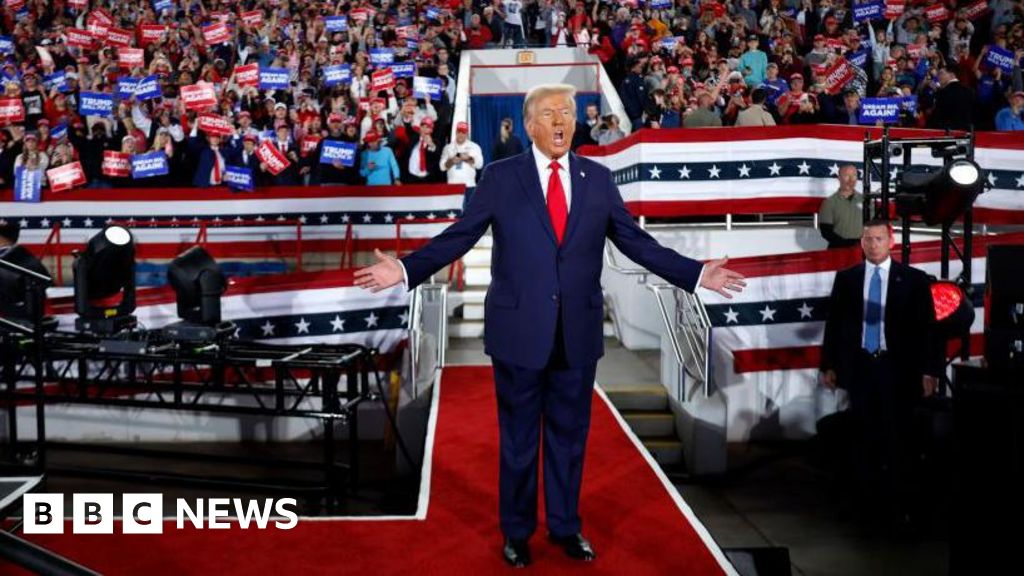The sun rises behind the skyline of lower Manhattan and One World Trade Center on September 14, 2024, in Jersey City, New Jersey.
Gary Hershorn | Corbis News | Getty Images
This report is from today's CNBC Daily Open, our international markets newsletter. CNBC Daily Open brings investors up to speed on everything they need to know, no matter where they are. Like what you see? You can subscribe here.
What you need to know today
Record close for Dow
U.S. markets were mixed on Monday. The S&P 500 and Dow Jones Industrial Average rose, with the Dow notching a record close. But the Nasdaq Composite fell. The pan-European Stoxx 600 index lost 0.16%. U.K.'s FTSE 100 ended flat. The Bank of England will meet Thursday for its latest monetary policy decision.
Intel forges new path for foundry
Intel shares popped around 8% in extended trading on news the chipmaker plans to structure its foundry business as an independent unit with its own board and ability to raise outside funding. It might even spin off the business as a public company, according to a person with knowledge of the matter. Separately, the Biden administration on Monday awarded Intel up to $3 billion under the CHIPS Act.
Blemished Apple
Apple shares slid 2.78% after TF Securities analyst Ming-Chi Kuo reported demand for Apple's new iPhone 16 was down 12% year on year compared with the iPhone 15's first-weekend sales. Kuo also said consumers weren't enthused because Apple Intelligence wasn't available with the iPhone at launch, and as competition from Chinese manufacturers dents iPhone demand.
Choppy flight
Boeing is implementing a hiring freeze amid plans to cut costs, such as pausing nonessential staff travel. Just this year, Boeing has had to deal with: a 737 MAX door panel blowing out in midair; its Starliner spacecraft returning to Earth without its two planned passengers; and a strike by more than 30,000 workers.
[PRO] Short-lived record?
The S&P 500 is less than 1% away from its record high set in July. The upcoming Federal Open Market Committee meeting, at which the U.S. Federal Reserve is expected to cut interest rates by at least 25 basis points, might lift the S&P to new heights. But analysts warn the new high might be short lived.
The bottom line
Technology stocks benefit the most from low interest rates, conventional market wisdom says.
That's because tech companies tend to promise future profit in exchange for present money. When rates are low, that proposition appears attractive because returns are low elsewhere. But when rates are high, those promises don't seem as attractive as less risky returns from assets such as Treasurys.
The past two years have demolished this narrative. Tech has soared even as interest rates have been at 23-year highs, thanks to enthusiasm over artificial intelligence's promise of new and explosive revenue streams.
Nvidia, the lynchpin of AI, has soared nearly 136% just this year. Meta, which has its own AI model named Llama, is up about 51%.
With the market is pricing in a 62% chance — up from 30% last week — that the U.S. Federal Reserve will make a larger-than-usual cut of 50 basis points, according to the CME FedWatch Tool, it stands to reason tech will pop further.
The sector, however, has been rocky in recent weeks. The VanEck Semiconductor ETF, for instance, fell 1.31% Monday, while Nvidia slipped 1.95%.
The tech-heavy Nasdaq Composite fell 0.52%, while the S&P 500 inched up 0.13% and the Dow Jones Industrial Average added 0.55% to close at a new record.
This implies investors have been moving out of tech to other sectors that might experience tailwinds amid lower rates. Case in point: the financial and energy sectors rose more than 1% on Monday, performing better than the broader market.
Goldman Sachs noted hedge funds' weekly purchases last week of financial stocks were the highest since June 2023.
"Other areas of the market are starting to perk up, and a lot of that has to do with the future rate cuts that are coming into play," said Christopher Barto, senior investment analyst at Fort Pitt Capital.
That doesn't mean tech's out of favor. It's likely to continue driving the market. But other sectors might show up for the ride.
– CNBC's Hakyung Kim, Pia Singh and Yun Li contributed to this story.











 English (US) ·
English (US) ·